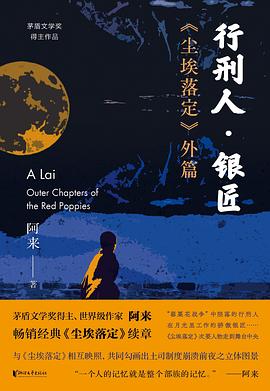WULOLIFE
《行刑人银匠:尘埃落定外篇》作者: 阿来浙江文艺出版社
《行刑人银匠:尘埃落定外篇》作者: 阿来浙江文艺出版社
Couldn't load pickup availability
Description
内容简介· · · · · ·
▷与《尘埃落定》相互映照,相互补充,勾画土司制度崩溃前夜之全景图
...
▷《尘埃落定》的次要人物走到舞台中央,成为故事的核心
————————
【内容简介】
《行刑人·银匠——〈尘埃落定〉外篇》是阿来荣获茅盾文学奖的作品《尘埃落定》的精彩续章和“番外”,该作是阿来完成长篇小说《尘埃落定》前后,以小说中三个相关或未充分展开的人物为主角生发、延展而创作的作品。
其中,既有土司家族世代相传的行刑人,通过行刑人的目光重塑影响土司制度历史走向的“罂粟花战争”;也有从《尘埃落定》的月光里走出的天才银匠,借助银匠骄傲的一生折射土司家族的权利争夺与更迭;还有藏族民间故事的智者阿古。
这些“外篇”既是《尘埃落定》的有机补充,又与《尘埃落定》互相映照,在彰显文学自身的无穷魅力的同时,与《尘埃落定》本篇共同勾画了雪域高原土司制度崩溃前夜的立体图景。
————————
【媒体及名人推荐】
显示了作者出色的艺术才华。
——第五届茅盾文学奖授奖词
一切听凭机缘的发生,世间流传。
——铁凝
《尘埃落定》的成功,与其说是叙事的成功,不如说是语言的成功,说达成功。
——吉狄马加
他的讲述是一场能指的游戏,以非凡的感性为他的世界的万事万物重新命名。那时,便是尘埃落定。
——李敬泽
凭借作为一个作家的定力、创造力和顽强的掘进精神,阿来既能够创造性地吸收拉美的魔幻现实主义元素,又能成功地摆脱来自拉美小说大师的影响,从而避免成为匍匐在大师脚下的爬虫。
——邱华栋
阿来的小说,充满一股“朴拙”之气,这在一定意义上讲,就是“反技术”的。他的文字,在虚构的空间里自由地弃跑。简约、素朴、儒雅、诗性的语言,自然而不求绚丽,尤其是“拙”,拙”得老到而且敦厚。因此,这也就难免不带着诡谲的、不时也会越出叙事边界的“禅机”。
——张学昕
与其说阿来擅长讲述藏族生活,不如说他擅长讲述的是人生活在异质文化夹缝里的分裂、游移、不安和隐痛。
——张莉
作者简介· · · · · ·
阿来
著名作家,茅盾文学奖获得者。1959毕业于马尔康师范学院。曾任成都《科幻世界》杂志主编、总编和社长,现任四川省作家协会主席。
1982棱磨河》,小说集《旧年的血迹》《月光下的银匠》,长篇散文《大地的阶梯》《草木的理想国》,长篇小说《尘埃落定》 《机村史诗》(六部曲)《格萨尔王》《瞻对》《云中记》等。
2000年,第一部长篇小说《尘埃落定》获得“第五届茅盾文学奖”。 2009年,凭《机村史诗》(六部曲)获得“第七届华语文学传媒大奖•年度杰出作家奖”。2018年《蘑菇圈》获“第七届鲁迅文学奖中篇小说奖”。2019年《云中记》荣获中宣部“五个一工程”优秀作品奖。
